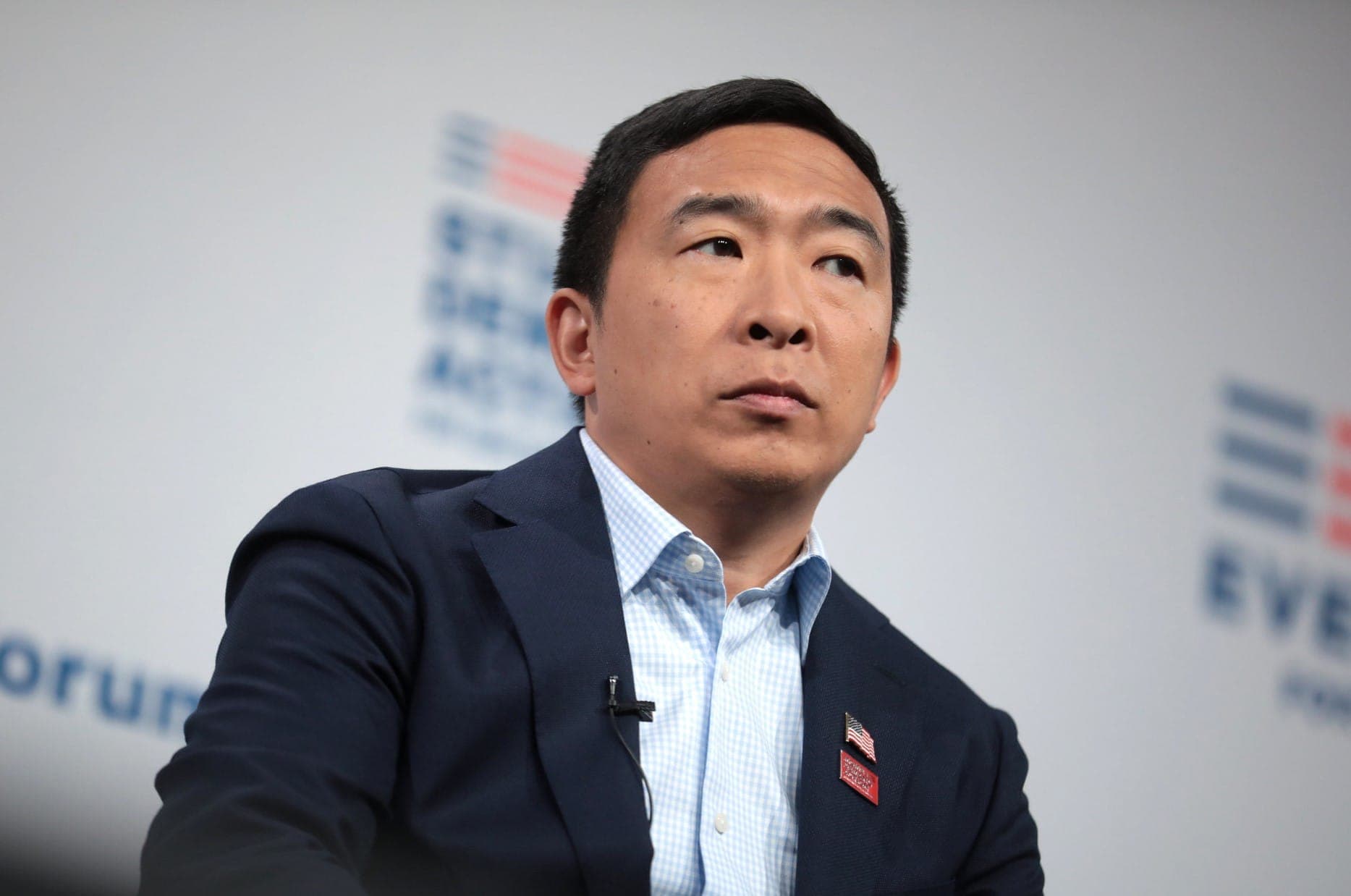Green Party Leaders Say Major Parties Gutted Presidential Campaign Fund to 'Silence Opposition'

Photo Credit: Vladimir Solomianyi on Unsplash
Tax season is here – a time of year many Americans dread. And like every year, when citizens file their taxes, they will be asked a question:
"Would you be willing to give $3 to the Presidential Election Campaign Fund?"
It's completely voluntary and goes toward a contribution matching fund for presidential campaigns. But how would voters who contribute to this fund respond if they found out that money isn’t going to its intended purpose?
Congress recently approved a funding package that is typical of what voters can expect from partisan lawmakers who can only agree on the bare minimum to avoid a shutdown and is stacked with over 1,000 pages of things many voters will never hear about.
Like, for instance, how Congress approved moving $375 million out of the Presidential Election Campaign Fund. Raw Story reports that the funds were re-allocated to increase funding for the Secret Service and “election security grants.”
This amounts to a massive chunk of the fund, which is not used by the major parties anymore but is something minor party candidates have benefited from in the past and might benefit from in 2024.
Members of Congress have advocated for changing or outright eliminating the fund. Republican US Sen. Joni Ernst was quoted by Raw Story, saying in 2023, “It's just sitting there … This is just a small effort on many other efforts that we have in trying to tackle this budget.”
“You’ve just got to get out there and raise money if you're gonna play, so why do we do this?” she added.
The North Carolina Green Party said gutting the fund is an effort to “silence the opposition.” Advocates for third party candidates say it can help in an electoral system designed to exclusively benefit the two major parties.
Meanwhile, voters have long been divided on the subject of public financing for campaigns, though the vast majority think the way the US handles campaign finance needs to change.
Still, millions of taxpayers give to the Presidential Election Campaign Fund each year.
Regardless of how one feels about the public financing of campaigns, is it appropriate to tell voters they are giving to one thing and then use that money for something else?
Especially if taxpayers give to the program because they support it.
What Is the Federal Election Campaign Fund?
In 1966, Congress passed the Presidential Election Campaign Act. The law began an era of public funding for presidential campaigns and relied only on a voluntary contribution from taxpayers of $1 at the time.
The maximum contribution was soon raised to $3.
According to the Federal Election Commission, the fund was designed to use taxpayer money to “match the first $250 of each contribution from individuals that an eligible presidential candidate receives during the primary.”
And, “Fund the major party nominees’ general election campaigns (and assist eligible minor party nominees).”
The catch for the candidate is that they have to adhere to certain campaign finance qualifications and restrictions in order to qualify and receive funds.
For example, a candidate seeking primary matching funds has to show broad public support by raising more than $5,000 in at least 20 states, and they must receive this from at least 20 contributors since only the first $250 is counted toward the matching program.
Further, the candidate would have to limit their spending in primary elections, both in terms of total spending and spending per state. In 2024, the national spending limit is $61.79 million (according to the FEC).
Candidates who seek general election funds receive a grant if they qualify and must limit spending to the amount of the grant.
In 1976, each major party nominee received $21.8 million. In 2008, the last time a major party candidate accepted a grant, the amount had grown to $84.1 million and would be $123.5 million in 2024.
In today’s presidential campaign environment, these amounts pale in comparison to the billions raised and spent by the parties, PACs, and major party campaigns. It is no surprise, especially with how campaign finance laws have changed, that major parties opt out of matching funding.
Former President Barack Obama was the first major party candidate to end the standard practice of campaigns using the grant. That year, he raised nearly $745 million – kicking off a new era in presidential campaign funding.
What About Third Party Campaigns?
The FEC says the public funding program is not only meant to fund major party campaigns but help qualifying third party campaigns as well. Third party leaders, candidates, and activists say gutting the Presidential Election Campaign Fund serves to only strengthen the duopoly.
Green Party of California Co-Founder Michael Feinstein wrote about the issue in 2021 in the wake of HR1, touted as a better elections bill, which third party advocates said would make it all but impossible for their candidates to qualify for matching campaign funds.
Feinstein says there is “a strong correlation between the amount [candidates who qualified for matching funds] raised and the number of additional ballot lines they gained, beyond those the Green Party already had going into that cycle,” Feinstein wrote.
Put simply, the Presidential Election Campaign Fund helps third party presidential candidates achieve ballot access in more states.
He specifically looked at the 3 times the 7 historical Green Party nominees qualified for and received matching funds. Dr. Jill Stein, the current party nominee, qualified and received these funds in 2012 and 2016.
Independent and third-party candidates are getting more attention in the 2024 presidential election cycle as the public appears open to consider candidates like Robert F. Kennedy Jr, Cornel West, Stein and others not running on the Republican or Democratic ticket.
As predicted back in December, this has escalated attacks on so-called “spoiler candidates.” And in the 2024 cycle, it goes beyond the standard talking points that voting for one of these candidates is a “wasted vote” or is really voting for the least preferred option.
Mother Jones, which is known for its bias toward the Democrat narrative, recently ran the headline, "Will RFK Jr. and Other Third -Party Candidates Help Doom Democracy?”
The “vote for us or doom” approach has never been so explicit.
The Democratic National Committee reportedly is building a team and strategy that will specifically “go to war” with third party and independent candidates. It has already tried to convince voters they have no other choice if they value democracy but to vote the way they want.
The irony should not be lost on anyone.
Jason Call, campaign manager for Dr. Stein, said he doesn’t know how the Democratic Party can run on a platform of saving democracy when it is actively trying to kick or keep candidates off the ballot.
“The Democrats appear willing to kill democracy in order to ‘save it,'" he said. He noted that both parties are not beholden to the interests of voters or the democratic process, but rather the corporate interests that fund them.
Members of the Green Party say raiding the Presidential Election Campaign Fund is just the latest attack by the major parties on outside competition.
Feinstein tweeted:
"To eliminate competition to the #duopoly, #Democrats & #Republicans have secretly gutted the Federal presidential primary matching funds program that historically has helped the Green Party make it on the ballot across the nation."
It has not been confirmed who added the Presidential Election Campaign Fund provision in the government funding package signed by President Biden. But it is clearly something that has bipartisan support.
Money in politics continues to be a major issue of concern for voters. Whether publicly funded programs to match campaign funds or place limitations on contributions and spending are the answer remains a topic of debate.
However, one thing is clear: When taxpayers are asked if they want to contribute to the Presidential Election Campaign Fund when they file this year, it is reasonable to ask whether or not the money will actually go to that purpose.
There is a chance it won't.
 Shawn Griffiths
Shawn Griffiths







